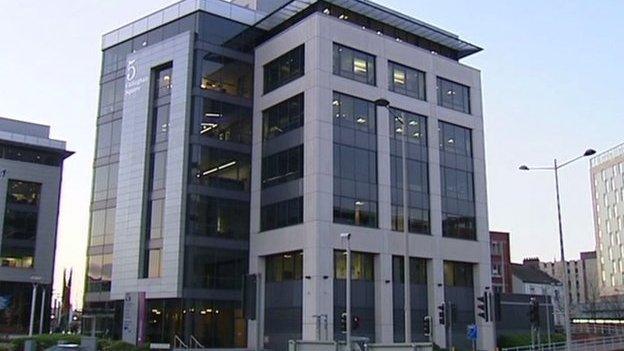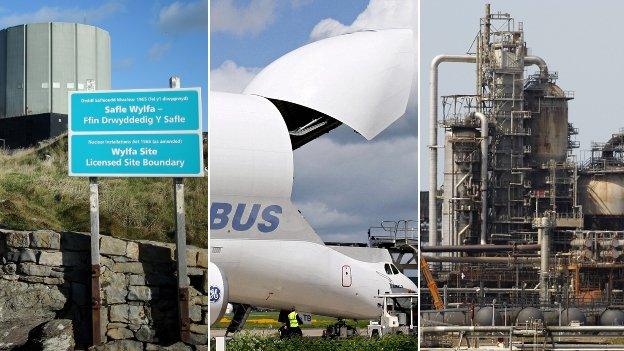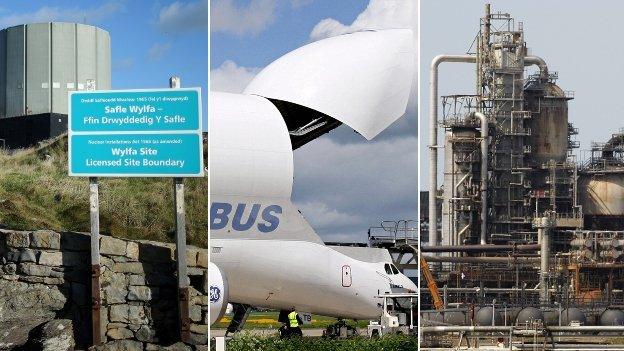Enterprise zones 'no quick fix' for Welsh economy
- Published

Energy and engineering are some of the Welsh enterprise zones priorities
Enterprise zones are not a "quick fix" for the Welsh economy, a Labour AM and former council leader has claimed.
Swansea East AM Mike Hedges said the zones did not include life sciences, or do enough for hi-tech communications.
In an article for the Institute of Welsh Affairs, external, he called for closer links with universities, with the aim of long term, sustainable job creation.
The Welsh government said enterprise zones were "just one component" of its action to boost jobs and growth.
'Disappointing' record
The Welsh government set up seven enterprise zones in 2011 and 2012 to encourage new firms in specific industries:
Anglesey - energy
Cardiff - financial and professional services
Deeside - advanced manufacturing
Ebbw Vale - advanced manufacturing
Milford Haven - energy and environment
St Athan - aerospace
Snowdonia - energy, environment and information and communications technology
Mr Hedges said lessons had to be learned from enterprise zones of the 1980s - which included Swansea - saying reports showed up to 80% of the jobs created had been lost elsewhere, especially in retail.
"In Swansea, the term enterprise zone is used as an alternative name for an out-of-town shopping area," he said.

Central Cardiff is being marketed as a base for financial services
The AM also noted that the record of just over 2,000 jobs created in the seven new zones over four years would be "disappointing to those who see enterprise zones as a quick fix".
"Whilst enterprise zones are one way of helping to develop the economy, working closely with universities and commercially exploiting their research is another," he said, warning against expanding or creating new zones.
"We need to be patient and produce sustainable employment rather than bringing in another LG at substantial cost," he added.
In 1996 the Korean firm LG had promised to create 6,000 jobs by opening an electronics plant in Newport, in one of Wales' biggest ever inward investment projects.
At its height the site employed 3,000, closing in 2006 at a cost to the taxpayer of £60m.
The Welsh government said its pro-business policies were delivering record levels of inward investment, and incomes and employment was rising faster than other parts of the UK.
A spokesperson said: "The report recognises and reiterates what we have said from the outset, that enterprise zones are not a quick fix and form just one component of our action to create jobs and economic growth in Wales."
The spokesperson added that between 2013 and 2014 employment in the life sciences sector in Wales increased more quickly than in the UK, and more quickly than in all the other priority sectors in Wales.
- Published17 January 2015

- Published14 January 2015

- Published23 September 2014

- Published21 October 2013

- Published20 September 2011
